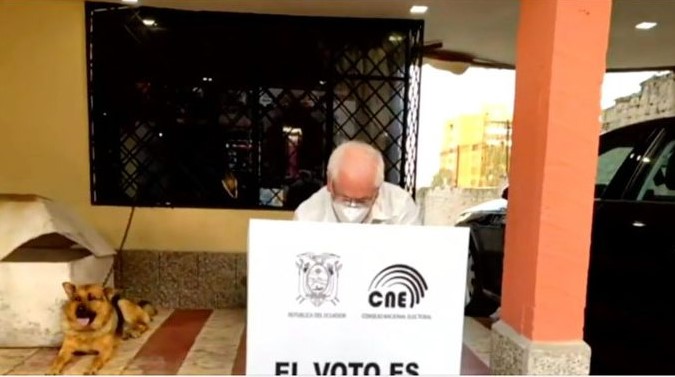
This Friday, February 5, the second special day of voting for the 2021 general elections was completed, this time with voting at home for people with disabilities, whose inauguration ceremony was attended by electoral authorities, from other State bodies and international observers.
The president of the National Council for the Equality of Disabilities, Xavier Torres, stressed that it has been 15 years of this participatory process, as a measure of affirmative action so that the members of this segment of the population have the possibility of exercising their right to vote.
According to Torres, 426.000 people with disabilities have the right to vote, optionally, despite which absenteeism at the polls is low, thanks to the action carried out by the National Electoral Council (CNE), National Police, Fedotaxis and the federations Nationals for Disability, which has been successful.
“Affirmative action measures, such as preferential service tables, which have been implemented in a number of 4.385, nationwide, at the polling stations, demonstrate the commitment we have to provide voting facilities. At the same time, the nearly eight thousand Braille templates, installed in the preferential attention tables, plus the measures for accompanied or assisted voting that the person with disabilities will have, ”Torres stressed.
In his opinion, these processes clearly demonstrate the participatory democracy that exists in the country, with the participation of the pertinent instances that make it possible, in this case, to vote at home for 653 citizens, with mobile voting receiving boards, with the necessary assurances and guarantees of that vote.
He pointed out that this day is important for the individual growth of people with disabilities and the country’s democracy.
In the opening ceremony, the head of the CNE, Diana Atamaint, greeted the presence of international observers, which she said is the guarantee of transparency with which the election day takes place. She highlighted inclusion as one of the fundamental principles of the electoral process.
She stressed the will of people with disabilities, who expressed their decision to participate in the voting, as an example of civility and patriotism. She also recognized the collaboration of the members of the Federation of taxi drivers, Fedotaxis, who made 346 vehicles available to transport the 173 mobile voting stations.
Atamaint pointed out that, according to the electoral registry, 426.738 people with disabilities are registered in the electoral process, for whom 4.385 preferential attention tables will be installed in 4.276 electoral precincts, nationwide, which will have 8.770 Braille templates, to allow the exercise of suffrage for people with visual disabilities.
She affirmed that the CNE works to ensure that all electoral services reach, equally, all segments of the population, without any restrictions, in order to deepen democracy.

Be the first to comment